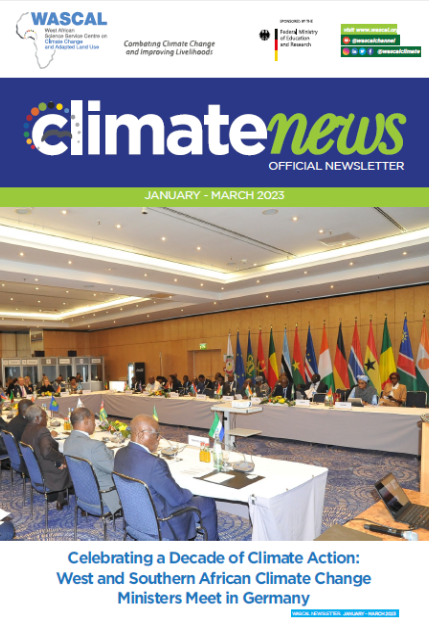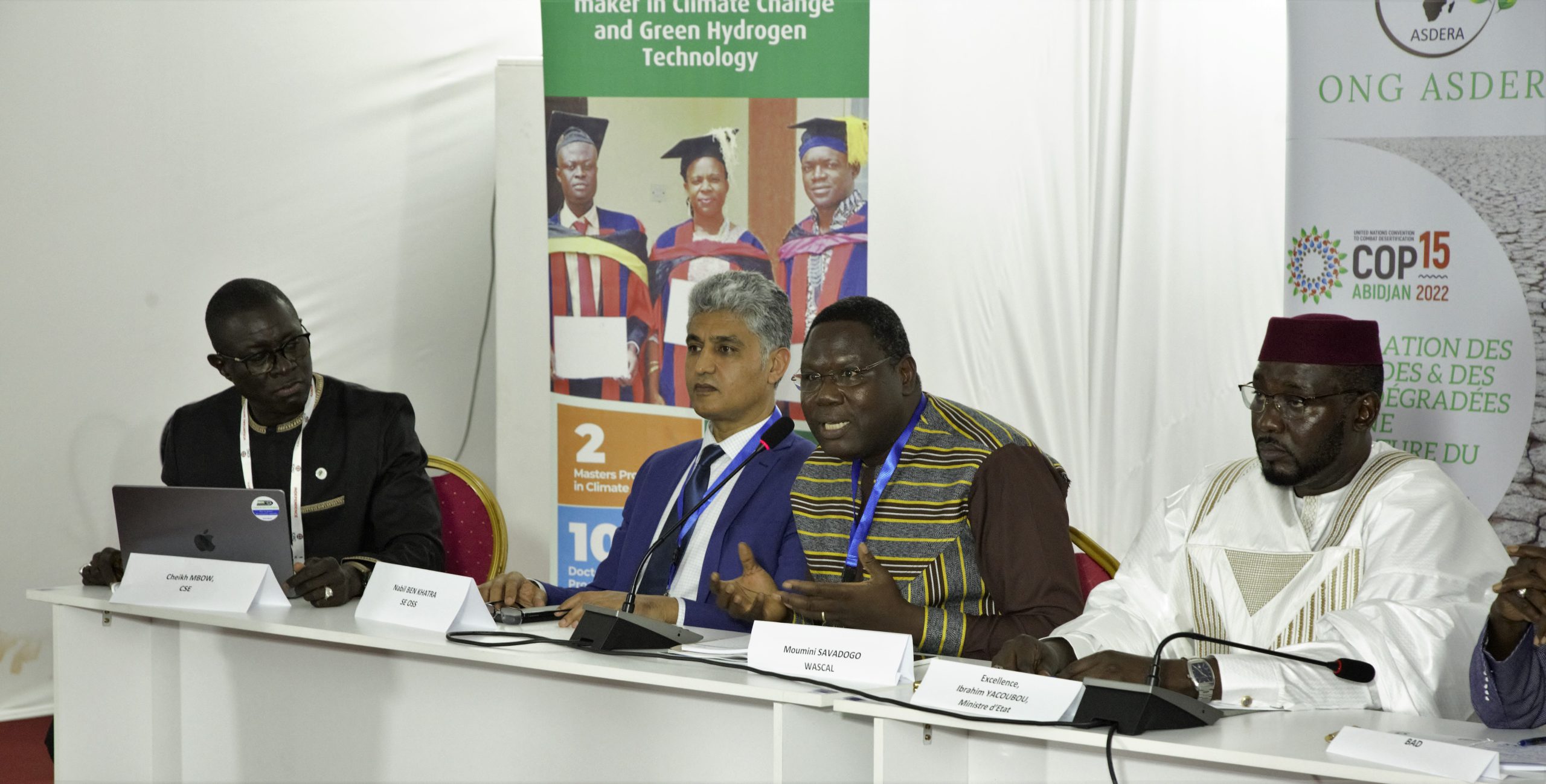INFORMATICS FOR CLIMATE CHANGE CLIMATE CHANGE & MARINE SCIENCE
Download here
GOVERNMENT OF BURKINA FASO READY TO WORK WITH RESOLUTIONS FROM WASCAL SCIENCE SYMPOSIUM TO MEET NDCs
The Minister of Higher Education, Research and Innovation of Burkina Faso, Prof. Adjima Thombiano has stated that the government of Burkina Faso looked forward to receiving the resolutions and any Continue Reading
Introduction The West African Science Service Centre on Climate Change and Adapted Land Use (WASCAL) is a West African regional institution dedicated to improving scientific and applied knowledge to combat Continue Reading
Introduction Le Centre Ouest Africain de Service Scientifique pour le Changement Climatique et l’Utilisation Adaptée des Terres (WASCAL) est une institution régionale ouest africaine dont la mission principale est d’améliorer Continue Reading
As part of its efforts to contribute to increasing the resilience of human and environmental systems to climate change, and to reduce vulnerability, WASCAL will be engaging global actors in Continue Reading
WASCAL and delegates from the German Federal Ministry of Education and Research (BMBF) have participated in this years’ ECOWAS Sustainable Energy Forum (ESEF), which took place in Abuja, Nigeria, under Continue Reading
The Executive Director of WASCAL, Dr. Moumini Savadogo, has reiterated the organization’s commitment to tackling the issue of the challenges pesticides pose to the campaign against climate change in West Continue Reading
Pests and diseases (especially in maize, onion, and tomatoes) constitute a major problem to the agricultural sector in Burkina Faso (and the rest of West Africa) and threaten food security Continue Reading
One of the key highlights at the United Nations Convention to Combat Desertification (UNFCCD) Abidjan Cop15 side event by Institut de recherche pour le développement (IRD) and partners on “Shaping Continue Reading
WASCAL has celebrated ten years of combating Climate Change, improving livelihoods, and promoting clean and sustainable renewable energy in West Africa. The celebrations of WASCAL A DECADE was held on Continue Reading











